"With 27 years in business serving the community of South Florida, Static Electric is your one-stop shop for all business and residential electrical contractor needs."
From new homes through remodeling and renovations, we’ll give you peace of mind that your installation is safe and fully compliant with building codes. In commerce and industry, we’ll ensure the safe and efficient functioning of your business’s electrical operations, help you save money and avoid costly downtimes.
How the Internet of Things is Changing New Home Construction
The Internet of Things (IoT) is a pretty bad name for a pretty great set of systems designed to save the average homeowner time and money. When new construction electrical plans include extra time and materials to incorporate smart home technology, it’s a smarter fit than waiting until the technology improves and the homeowner wants to retrofit. Add it into your original home plans, because this technology is only getting more popular.
What is the Internet of Things?
Call it the IoT, smart home technology, or computerized systems, it all means the same thing: a collection of appliances and devices that use wireless technology to speak to each other. This allows for easier maintenance, alerts that prevent expensive accidents, and even big savings on power and even grocery bills. Some of the more popular Internet of Things home additions are:
- Smart TVs. This is probably the most common and well-known example of the technology. Smart televisions allow you to stream movies and television shows, play games, surf the internet, and even download technology updates, right from your television screen. Some can self-diagnose a problem, and all will alert you when they need an update.
- Computerized Refrigerators. They may have seemed a huge indulgence when they first came out, but refrigerators with a computer inside actually make a lot of sense. When kept up-to-date, the inner list function can alert you when you run out of crucial grocery items, preventing wasted time and money. They can also alert you when the temperatures fluctuate, indicating a possible expensive repair problem and enabling you to get it fixed before the problem grows larger.
- Smart HVAC Systems. These environmental systems can sample the air outside and keep track of weather reports to adjust the quality of air inside your home. Electronic thermostats adjust the heating and cooling to make sure each room of your house is at the optimum temperature, no matter what time of the day. Some systems can even be segmented into room-by-room sections and adjust the temperature as needed if the rooms are occupied or empty.
- Smart Lighting. The more smart lighting you have throughout your home, the more money you’ll eventually save on maintenance costs. All electrical systems need to be regularly maintained, but with smart lighting your system can be monitored remotely, with the electrical contractor only coming out when he’s really needed.
- Security. Homes have had security systems installed for decades, but the Internet of Things makes them more accurate and responsive. They’re more able to distinguish between benign visits and criminal occurrences, and can be better embedded into your whole house system, making them more difficult for criminals to shut down.
Installing Internet of Things Technology
All IoT systems rely on wireless connections or local area networks (LANs) for communication. This means installing more robust wiring throughout the house to allow current and future connections to take place. When you compare the cost and trouble of tearing down walls and rebuilding after rewiring, there’s no question that it makes sense to incorporate this technology into new construction electrical plans. Even if you don’t think you’ll ever have any need for smart home technology, having your electrical contractor in south Florida and it makes good financial sense. Most homes are resold eventually, and having your building wired and ready for the Internet of Things can be an impressive selling point for many new buyers.
Read MoreMaintaining a Computerized Lighting System at Your Home or Business
The computerized lighting system concept is a small part of a new technology known as the Internet of Things (IoT). It’s a large group of systems that gather information from many devices, each of which has a sensor. These devices don’t really need the internet to work, as they mostly take advantage of wireless connections or over a wired LAN, or local area network. Among the many devices included in the Internet of Things are:
- Home appliances
- Building operations systems
- Production equipment
- Home or business lighting systems
Computerized Lighting Systems Advantages
The key to saving money and power on any electronic system is maintenance. Maintaining your appliances and devices on a regular basis allows you to prevent problems from happening, as well as fixing problems when they’re small and repair costs are less expensive. Electrical contractors following a traditional maintenance schedule will change bulbs, check electrical wiring, look for signs of wear, and replace parts as they wear out. This works to keep costs low and electrical systems running. But with computerized lighting systems, you can go one step further.
Because the individual parts in these systems each have a sensor that talks to other sensors in the group, your contractor has the ability to find out information about your system at a much more rapid pace. If your office lights are dimming at a certain time of the day, he can tell whether it has to do with other building systems that kick on at the same time, draining some of the available power, or if you have a light fixture that’s going to need replacing. And he can tell before he even leaves the shop, because your system will have sent an alert signal, letting him know about the problem. All without ever having to inspect your lamps and wiring.
What Your Electrician Will Look For
Electrical maintenance in south Florida is a challenge, because of all the outages we have in this area. Between older electrical systems in our communities and the high volume of electrical storms all year round, we have a higher incidence of electrical problems that most of the rest of the country. This makes it even more crucial for your electrical contractor to maintain your system on a regular basis.
A computerized system can offer a lot of useful information. Most systems can offer multiple types of information from the same system, such as hours used, power surges, and average power usage. All systems can be set to trigger an alert from multiple causes, and require a different response for each problem. Systems can automatically call your contractor and generate a work order, in effect calling in an emergency before one actually arises. They can even identify potential problems for your contractor to discuss with you, defining future work to allow you to budget accordingly.
Condition Based Management (CBM)
Having a system that calls for a repair before a problem even arises may sound like a way to increase the amount of contractor visits, but just the opposite situation actually exists. Computerized systems create a concept called condition based management, or CBM. With a CBM system in place, most regular maintenance calls are no longer necessary. Your contractor only has to come out when something’s about to go wrong, and your system will tell him when it’s happening. He’ll still repair troubles before they become large problems, and he’ll still run some checks for wiring and other equipment, but for the most part your contractor will only show up when he’s really needed.
Read MoreWhen Should My Electrical Contractor Be On Site?
Whether you’re building a new home, undertaking an electrical remodeling and renovation project or building a commercial structurer that needs commercial electrical installation, at some point, you’re probably going to need to have an electrical contractor on site.
If you have a general contractor handling the construction for you, then they’ll probably be taking care of the scheduling of trades like electrical, but if you’re still wondering when your electrical contractor should be on site (and why timing matters!) read on.
Why Timing Matters
On most projects, an electrical contractor will work as a sub-contractor, with the main or general contractor determining how the construction or remodeling process would progress.
Problems can occur when a general contractor requests that an electrical contractor be on site too early, because there are usually costs involved in having any subcontractor wait on site. If they’re not earning their money, they’re losing it! This is why it’s so important that you work with experienced contractors and sub contractors, so that there is careful planning, and those sorts of additional costs can be avoided.
If there’s a delay in getting your electrical contractor on site during a construction or renovation project, whether residential or commercial, that is a problem too. If there is wiring to be done (and there usually will be) walls and finishes cannot happen until your electrician has been on site.
Critical Timing
Every construction project is different, and there are likely to be different factors involved in determining who needs to be on site when on your new build or renovation project, but there are a few constants. These are times when you will definitely want to see your electrical contractor or their representative on your work site:
- Before quoting, your electrical contractor should do a site visit to make sure they are clear on what they are pricing.
- Shortly after your project starts, there should be a kickoff meeting, and it’s likely that your electrical contractor will be present.
- At weekly or monthly progress meetings, but usually only after their portion of the project has started.
- Once the walls are up, and the wiring and rough ins need to be in place for finishing to continue.
- At the end of your project, for final fixtures, fittings and finishing of the electrical installation.
- Any time there is a planned inspection that might include electrical.
Usually, the timing of these visits to site will be worked out by the general contractor and your electrical contractor, but if you are managing your own renovation or remodel, you might have to be more involved in the process. Make sure that there’s a clear schedule for any project, so you can limit delays.
Working Together
Good electrical contractors will be on site when you need them on site, and they’ll work together with you and your team (including construction professionals and general contractors) to get work done on an efficient time scale.
Make sure that you choose an electrical contractor that has the capacity to meet your deadlines, because in construction, like life, time often really is money, and timing can be very important to construction success. Keep communicating, and ensure that everyone is on the same page as far as scheduling, and things will go a lot smoother.
Read MoreHow Does Electrical Estimating Work?
Commercial electrical can be a complex process. Contractors often work with a variety of construction professionals like architects and engineers, larger general contractors, their direct clients, and many other people to complete new construction projects, or on maintenance projects that include electrical service contracts.
Unlike residential electrical in South Florida, which is usually a straightforward process that mainly revolves around getting a few quotes and choosing the contractor that offers the best deal, commercial electrical usually includes a bidding process. A big part of that bidding process is electrical estimating, and we thought we’d share a little more about how the electrical estimating process works, so that you have a little more insight into what we do.
Invitation to Bid
The electrical estimating process starts with an invitation to bid, or with an open bid invitation. When we are specifically invited to provide a bid on a project, it’s usually by a general contractor or a construction professional (like an architect) who we have worked for before. Sometimes, projects are advertised for open bid, which means that any contractor who meets the minimum criteria for the bid can provide pricing.
Specifications and Scope of Work
Once we’ve decided to provide a bid on a commercial electrical project, the next step is to establish what the scope of work and specification is. If there is a formal bid document, that will usually provide most of the information, but this step of the process may also involve contacting our client to ask for information, attending formal site meetings, reviewing drawings and more. The more information we have about a commercial electrical project, the more accurate our estimates can be.
Sourcing Products and Estimating
As an established electrical contractor, we have established relationships with suppliers, and our electrical estimating system already has most of the common parts, consumables, wires and cables and other elements included in it, but every once in a while, we need to find something specific, and this usually happens early on in the estimating process.
Once we’re sure that we have all the product information and pricing on hand, the next step is to do a detailed take off of materials and a labor estimate, and to compile everything into a detailed bid and proposal.
After We Quote
After we quote on commercial electrical projects, there may still be work to be done. Sometimes, our clients decide to make changes to the specifications and scope of work, sometimes they request alternatives. The process can take some time, and we usually expect to answer at least a few questions along the way.
After the Job Starts
Very often, the estimating process doesn’t end on commercial electrical projects just because the job has started. Just like we sometimes discover surprises on residential electrical projects in South Florida (particularly renovations and retrofits), there are sometimes surprises on our commercial installations and electrical service contracts too.
When those issues arise, our project management and estimating teams will usually work with the client to come up with the best, most cost effective solution to the problem.
As you can see, however, estimating for commercial electrical is a long and ongoing process. If you do have a commercial project, and you’d like to know more, be sure to contact our team. We’re always happy to help with advice, budget pricing and insight.
Read MoreGoing Green: How Solar Panels Work
It has become a common sight in the Sunshine State, to see solar panels on the roofs of homes and businesses. After all, with all that sunshine, it makes sense to take advantage of the energy savings and energy efficiency benefits that going fully or partly off grid offers, and what better way than to harvest sunshine!
Whether you’re interested in green building in general, or just considering retrofitting your home with solar panels to take advantage of energy savings and lower utility bills, you might have wondered how it all works. So we decided to give you the short and simple version of how solar panels work, and here it is.
Solar Panel Basics
The solar panels that power homes and businesses are known as photovoltaic or PV panels. There are other types of solar panels, such as thin film, and other methods of collecting solar energy like parabolic troughs, but if you’re going off grid, it’s PV panels that will do the work for you.
Solar panels work by creating an electrical field, by sandwiching two layers of silicon together, and by treating each of those layers to manipulate them into having a particular charge. The top layer will be treated with phosphorous, to add electrons, and create a negative charge, while the bottom gets added boron, which removes electrons, and creates a positive charge.
With the electrical field established, photons from sunlight can “knock electrons loose” and those electrons are then collected, and become electricity.
The Complicated Stuff
When you look at PV solar panels in such a basic, fundamental way, it can be difficult to understand why it costs so much to convert your home, get energy savings and conserve energy. However, there is a lot more to a solar power system for a building than just the panels (and even those are complex to design and manufacture.)
First, there’s the issue of the type of power that has been generated. Our homes run on what is known as AC, or Alternating Current, but the power that comes from a PV panel is DC, or Direct Current. Since the two don’t mix, the first thing that needs to happen is to use a piece of equipment called an inverter to convert the DC current into usable AC power.
There’s usually also a piece of equipment called a regulator installed early on in the solar power system. This piece of equipment helps to ensure that the power from your solar panels isn’t too much for your batteries or panel to handle.
Next, there are usually batteries, which are typically deep cycle batteries, which store the electrical power collected by the solar panels, since there is no power generated at night, and your home will still need to have power when it’s dark!
Finally, there’s the connection to your electrical panel, utility meter, and in some cases, the main grid.
Solar panels also need to be carefully oriented to collect sunlight efficiently, and there are many other considerations that need to be made. In short, while the principles of solar power are not too complicated, the systems can be, and if you’re thinking about going off grid, it’s always a good idea to talk to an electrical contractor who has some experience!
Read MoreWhat Does It Take to Become a State-Certified Electrical Contractor?
In the U.S. becoming a commercial electrical contractor is a multi-step process that requires study, practical experience, and various licensing exams. That’s a good thing too, because contractors literally work with something (electricity) that has the power of life and death. No one would let an unqualified surgeon perform surgery, and the same goes for our homes. Throughout the U.S. we’re choosy about who we allow to work with electrical power, and that’s a very good thing.
Various Types of License
Many people don’t realize that there is more than one kind of license for electrical contractors in Florida. These include:
- Electrical Contractor (Certified or Registered)
- Alarm Contractor I (Certified or Registered)
- Alarm Contractor II (Certified or Registered)
- Electrical Specialty Contractor (Certified or Registered)
Among the specialties that contractors can choose to be licensed for are:
- Residential Electrical Specialty
- Utility Line Specialty
- Lighting Maintenance Specialty
- Sign Specialty
- Limited Energy Specialty
Each of these types of license has slightly different requirements, and just because a contractor is licensed in one area, that does not mean that they can work in all areas of electrical installation, maintenance or repairs.
General Requirements for Licensing
Even though there are slightly different requirements for the different types of contractor licenses in Florida, there are a few basic criteria that each contractor will need to fulfill, regardless of their area of expertise and focus. These include:
- They must meet the minimum study requirements for licensing.
- They must meet the minimum experience requirements for the type of licensing they are seeking.
- They must pass the relevant exams, which may include industry specific exams as well as exams about business practices and other topics.
- They must maintain the minimum contractor’s insurance for their area of specialty at all times.
- Contractors will often undergo credit checks, and they will be required to meet minimum continuing education requirements.
As you can see, there’s a lot that goes into becoming an electrical contractor in Florida, whether you specialize in residential installations, commercial electrical, electrical maintenance or any other field.
As a company, like most professional electrical contractors in the State of Florida, we’re glad that these regulations are in place, because they help to ensure that customers who use licensed contractors can expect to get the appropriate electrical protection in West Palm Beach that we would want in our own homes.
When you work with a licensed electrical contractor, you can be sure that they know the business, that they have experience in the field, and that they have the documentation necessary to certify your installation, and the insurance to protect you if something goes wrong.
Always Choose a Licensed Contractor
Licensed electrical contractors have to go through a long process and jump through many hoops to get and stay licensed. That usually reflects in the rates they charge, although there are many out there that offer reasonably priced service and great value for money.
If there’s one piece of advice we can offer any potential customer, however, it is to always choose a licensed contractor. Even if someone who is not licensed offers to do a job for you at a great price, and you’re tempted, remember that unlicensed contractors cannot perform legal electrical installations, repairs or maintenance. More importantly, if you don’t use a licensed contractor, and a failure in their installation or electrical protection measures results in a fire or any other damage, you might not be covered by your insurance policies.
Just save yourself the trouble, and hire a professional. They’ll get the job done right, and you’ll have peace of mind.
Read MoreGizmos and Gadgets: How Smart Home Trends Are Changing Electrical Installations
At one time, if you did residential electrical in South Florida, you knew exactly what to expect. New construction electrical was pretty much the same, with a few variations in size and quantity of outlets, perhaps a bigger panel, and a few other minor differences. Those days are rapidly becoming a thing of the past, and the demand for smart home electrical systems to support a wide range of technologies is becoming much more common.
So far, there are a few contractors who have embraced this change, but much of the industry seems divided on whether these changes are good or bad.
Having been working in residential electrical in South Florida for some time, and in commercial and electrical maintenance, we’ve been watching these changes closely, and we’re excited about the possibilities.
What Sort of Changes Are We Seeing?
The term “smart home” really means networked home. Homes where lighting, blinds, music and entertainment systems and more are centrally controlled through an app or interface. On the surface, that all seems to happen as if by magic, but the reality is, there’s a lot more wiring and communications cables going into the walls of our homes. There’s additional power required for the equipment that makes the magic happen, panels typically need to be more complex and larger to accommodate the additional equipment required to run your home.
How Your Residential Electrical South Florida Installation Will Change
Whether your residential electrical South Florida contractor installs smart home equipment for you, or whether there’s another company taking care of that aspect of your new home, there will be changes to the wiring and electrical that will need to be made.
Additional cabling may be necessary, changes to the panel to cope with additional electrical requirements, additional outlets or junction boxes, and even changes to the types of lighting, because not all lighting is suitable for smart home system operation.
Whether your electrical contractor is taking care of the smart home equipment or not, there will be more planning involved too, since all the wiring and equipment will need to be in place before the walls of your home can be finished.
Choosing the Right Contractors
Perhaps the biggest change that smart homes are making in the electrical world is that it has become more important than ever to hire the right contractors for the job. With far more power now required to run your home, and a lot more equipment to safely install, electrical protection and careful planning has become more important than ever.
Integrating the various systems and elements is another factor, and if you are planning to build smart home technology into your new home or a renovation (even a very old home!), you definitely want to work with an experienced company, who can get the job done safely and on time, and who are good at working with any other specialists you bring on board.
The fact is, smart homes are the way of the future, and there are only going to be more gizmos and gadgets behind your walls in years to come. Make sure that the power and wiring that supports those gizmos is up to the job, and you’ll enjoy them all the more.
Read More


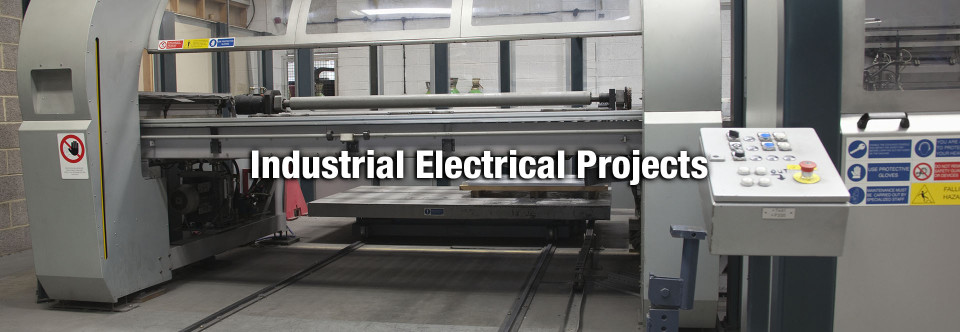

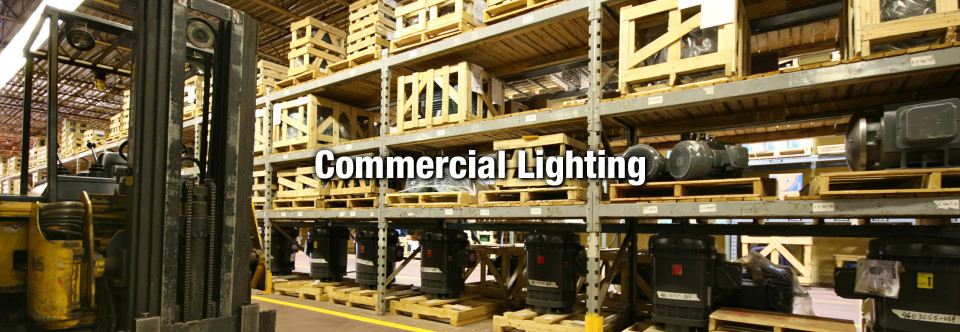

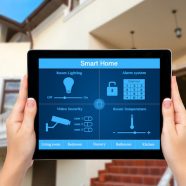
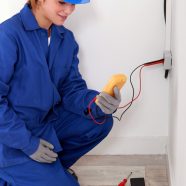
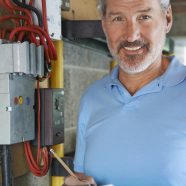

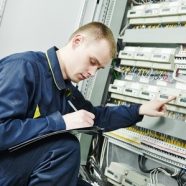
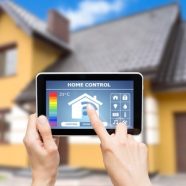
Recent Comments